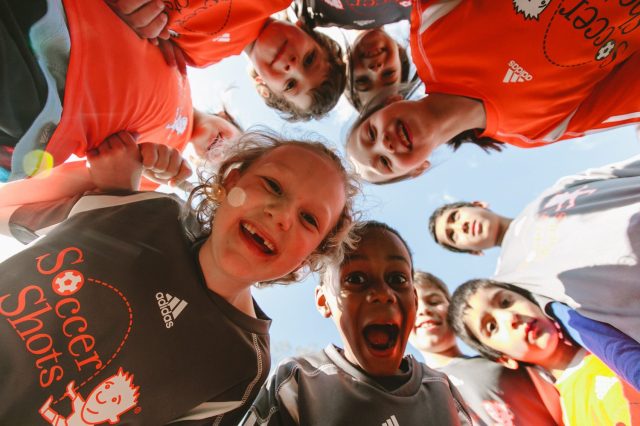Fellow parents were texting me in full-blown panic: “How is K doing?!? Is she hating it?!” We had just started remote distance learning and a flurry of texts came flashing over my cell phone. I peered over at my content daughter, happily typing away at her laptop and thought, “This is an introvert’s dream come true!”
To understand the introverted child, it's important to understand this: scientists believe that the introverted brain is one that is sensitive to the neurotransmitter dopamine because it has fewer receptors. In plain talk: too much dopamine through social stimulation, excitement and activity causes the introverted child to feel overwhelmed. This is why introverts prefer calm, quiet activities such as reading, writing or enjoying the company of one or two trusted friends as opposed to the social hubbub of larger gatherings. Introverts are born this way; there's nothing wrong with them—this is how they are wired.
In a society that encourages outgoing behavior and children to speak up and participate in classrooms, introverts are sometimes mistaken as shy, lacking confidence, weird or even troubled. With guidance, introverted children can flourish and thrive in a gregarious society. Over the years on my parenting journey, I have found a few tips that have been helpful for me, as an extrovert, in raising an introverted child. Although parenting is never a one-size-fits-all plan or formula, I hope that you might find one or two helpful tidbits below and if you have pearls of wisdom for me, I’d love to hear from you as well!
Accept and Embrace Your Introverted Child
It was the Nth birthday party in which K spent the entire duration at my side, clinging to my leg instead of socializing with her peers. “She’s tired, we’ve had a long week” I offered as a way of explanation yet again. Back at home, K happily played at her train table and with LEGOS. Why do I bother taking her to these parties? Why can’t she be more like Gabriella, the pre-school crowned “Mayor” I wondered? As an extrovert, I was exasperated and wanted K to be more like the other affable, talkative kids and also... well, like me.
I am ashamed to say that I both misunderstood K in her early years and also had a hard time accepting she wasn’t more outgoing. I tried desperately to galvanize her social calendar through arranging playdates and throwing large, lavish birthday parties—my idea of a good time, not hers. My advice to myself back then would be this: it’s ok for your kid to cling to your leg at social gatherings and it's ok to have small, quiet birthday parties or (gasp!) not have one at all. Bigger and louder is rarely (if ever) desirable for the easily overwhelmed introverted child.
Provide a Safe Space (Both Literally & Figuratively & Respect That Space)
All children need safe spaces to retreat to but introverted children need them even more. While an extrovert may welcome you into their space, most often, the introvert will not. K sometimes spends hours in her room reading and drawing with the door closed and if left to her own devices, would happily stay in her room all day so long as three meals a day appeared outside her door.
One day, K had her nose stuck in a book and was getting ready to head upstairs for yet another long afternoon on her own. Suddenly, she turned and announced, “Actually, I feel like company right now” and proceeded to flop on the couch next to me. The two of us continued our books in comfortable silence. I have found that giving K room and space to withdraw and recharge gives her the bandwidth to voluntarily and even proactively engage with others.
Encourage Self-Expression Outlets
Most introverts will tell you that they love reading; many are prolific but K took it to another level. Having taught herself to read, K was reading chapter books by kindergarten and tackling classics by second grade. Other quiet activities she loves to do alone are drawing, writing stories, origami, crafts and sewing. K also enjoys composing music and delights in any time spent in front of a piano. Again, self-expression is essential for all children but introverted children will gravitate towards ones that are done in solitude. Accept. Embrace.
Know When to Push
Fact: Introverts need to be goaded and coaxed into social gatherings and physical activity that require exiting the house. I have spent countless hours mentally preparing K for new (or old!) social situations. Be flexible and choose your battles. Allow extra time for mental prep. Sometimes a compromise might involve leaving early or not going to one gathering but promising to go to the next. You know your child best and know when they need a firm nudge.
Recently, K joined our church’s youth group. We talked beforehand about what to expect and when we pulled up, she asked to be dropped off instead of being walked in as we previously agreed on. I watched as she exited the car, took a deep breath, squared her shoulders and headed into a courtyard full of strangers...anxious but determined. Our journey continues to this day and we are constantly figuring out ways to help her navigate our increasingly loud world but in that one moment, my sweet, brave girl had never made me prouder.
—Christine Lai
featured photo by Soccer Shots
RELATED ARTICLES:
Helping Kids Re-Enter Their Post-Pandemic World
